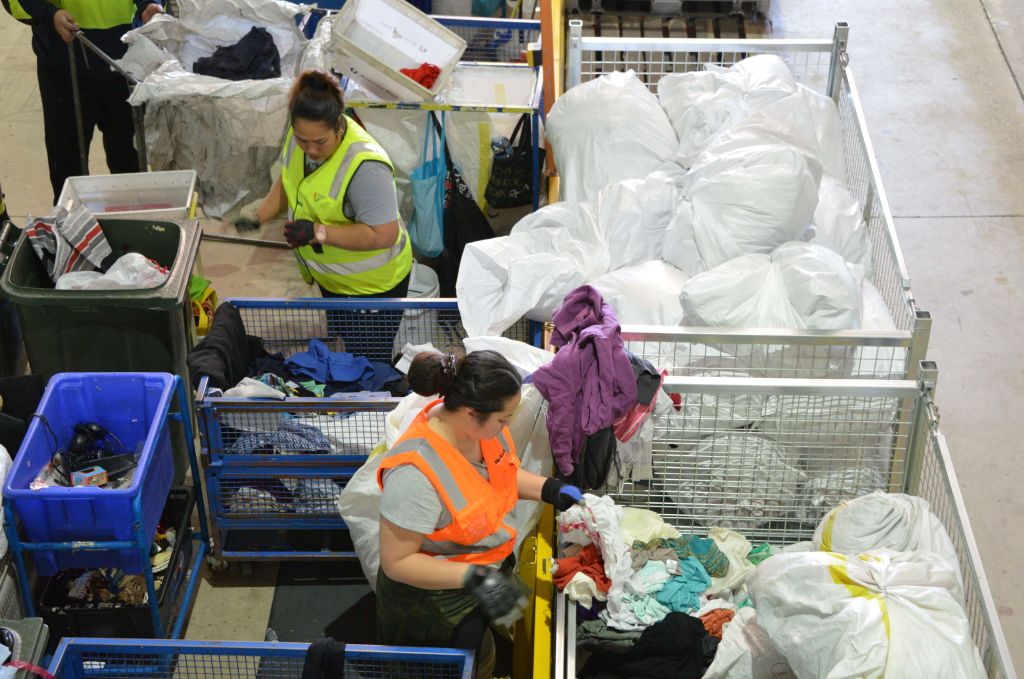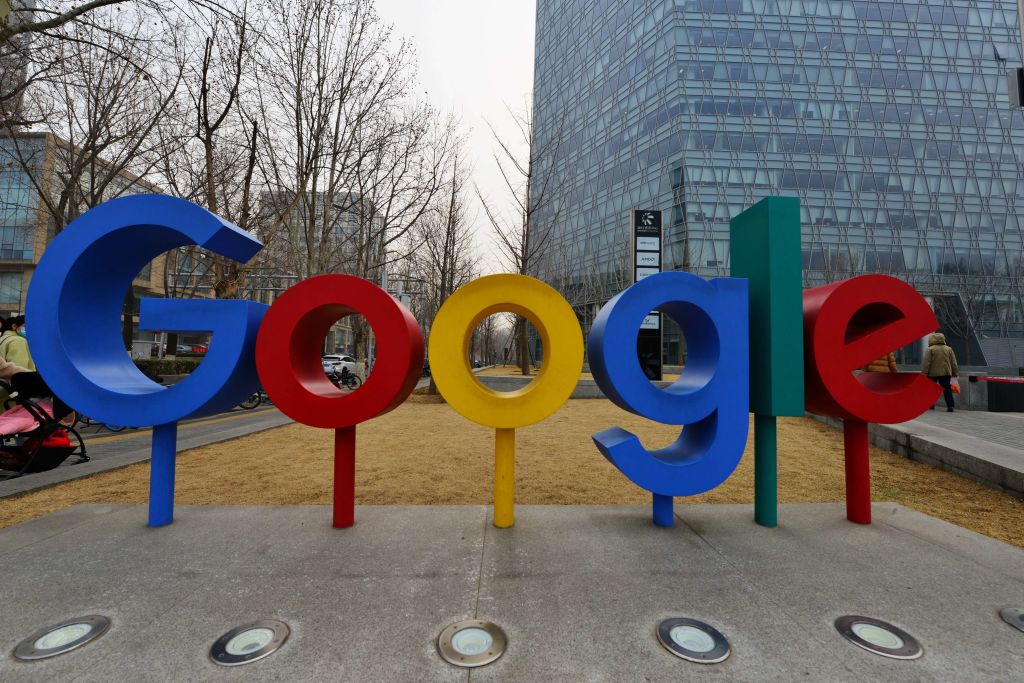The shift to a global economy based on reusing, repairing, and recycling—instead of making things, using them, and then throwing them away—is gaining traction as a sustainable investing theme.
Today, only 8.6% of the global economy is circular as the world consumes 100 billion tons of materials a year, according to Circle Economy, an Amsterdam-based global impact group.
Closing the loop on how goods are produced and consumed can address the problems created by depleting the Earth’s resources, in addition to the problems of pollution and climate change. According to the U.K.’s Ellen MacArthur Foundation, 45% of global greenhouse-gas emissions are generated by the creation and use of products and food, while the rest is generated by the use of energy.
Rising environmental challenges such as drought, fires, and flooding, in addition to changing consumer preferences and government regulation, are driving companies big and small to break away from a reliance on finite resources and to seek other solutions, says Jessica Matthews, head of sustainable investing at J.P. Morgan Private Bank.
That means, “by 2030, the circular economy could yield up to US$4.5 trillion in economic benefits globally,” she says. The benefits? “Saving 92 million tons of textiles in landfills, 1.3 billion tons of food waste, and 45 trillion gallons of water wasted through food production every year,” she says.
This multi-trillion dollar opportunity is leading growth-oriented, as well as sustainability-minded, investors to pay attention to this growing theme, as the push to create a circular economy drives innovation and new business models.
“Companies are innovating to tackle the challenge,” Matthews says. “That’s why it’s a growth story.”
The private bank currently has about US$12.5 billion in client assets invested in sustainable strategies across 100 funds on its platform, Matthews says. The assets are in all kinds of vehicles, from exchange-traded funds to private equity—and represent a range of investing approaches.
Matthews recently spoke with Penta about the potential for investing in the circular economy today.
The Business Case
What makes the circular economy an investing opportunity is that companies stand to profit more by reusing, refurbishing, and repairing products rather than sourcing virgin materials to make them, Matthews says.
Circular practices already are being used by clothing companies as well as technology and manufacturing companies, the Ellen MacArthur Foundation said in a September report titled “Financing the Circular Economy.”
In 2019, the resale market for fashion, including companies such as the RealReal, grew 25 times faster than the broader retail sector, while Philips, a Dutch conglomerate, reported 13% of revenues resulting from its circular practices.
In addition to major companies that are reforming how they make things—such as Unilever’s pledge to cut its use of virgin plastics in half by 2025—small companies are sprouting up to facilitate the shift, the report said.
Examples include RePack, based in Helsinki, which makes reusable, returnable packaging for products bought online, and Algramo, a Chilean startup, which allows consumers to refill cleaning products made by companies such as Procter & Gamble and Nestlé.
The move away from plastics for packaging is expected to create a US$700 million demand for corrugated cardboard in Europe and the U.S., the foundation said.
Investing Opportunities
According to the Ellen MacArthur Foundation there are 10 public stock funds globally focused on the circular economy, either in full or in part, including BlackRock’s BGF Circular Economy Fund, the Geneva-based Decalia Asset Management’s Decalia Circular Economy fund, and BNP Paribas’s Easy ECPI Circular Economy Leaders UCITS ETF.
There were also at least 10 corporate bonds issued globally with the assistance of major investment banks such as Goldman Sachs, HSBC, and Morgan Stanley, with proceeds either in full or in part dedicated to circular practices, the foundation said. Issuers include Alphabet’s US$5.75 billion sustainability bond (with a circular economy component), Daiken Corp.’s JPY5 billion (US$46 million) bond, and Owens Corning’s US$450 million bond.
Private market equity, debt, and venture capital funds are also on the rise—there were 30 funds as of the first half of last year, up from three in 2016, the foundation said.
At J.P. Morgan, Matthews is evaluating the available public mutual funds and is looking to bring one on its platform. Since many of the companies involved in the circular economy today are in niche businesses, “you have to be careful about how limiting you are in your universe,” she says.
Public funds focused broadly on companies with the best environmental, social, and governance practices also buy stocks of corporations on the leading edge of the circular economy, even if these companies—such as Unilever, Adidas, and Nike —don’t represent a distinct circular economy story.
J.P. Morgan is also looking at private markets. Similarly, the bank has found more opportunities to invest in the circular economy through funds that look at sustainability broadly, Matthews says. For instance, the bank has invested with a private venture firm focused on sustainability and climate solutions that has invested in a company working to create cold-pack packaging with less Styrofoam.
“Where [the circular economy] becomes more widely adopted and seen is in being favoured in broader sustainability portfolios,” Matthews says, adding that ESG managers doing fundamental research today will find themselves looking at some of the trends around circular, because “they are still underappreciated by the market.”
 Copyright 2020, Dow Jones & Company, Inc. All Rights Reserved Worldwide. LEARN MORE
Copyright 2020, Dow Jones & Company, Inc. All Rights Reserved Worldwide. LEARN MORE
What a quarter-million dollars gets you in the western capital.
Alexandre de Betak and his wife are focusing on their most personal project yet.
CIOs can take steps now to reduce risks associated with today’s IT landscape
As tech leaders race to bring Windows systems back online after Friday’s software update by cybersecurity company CrowdStrike crashed around 8.5 million machines worldwide, experts share with CIO Journal their takeaways for preparing for the next major information technology outage.
Be familiar with how vendors develop, test and release their software
IT leaders should hold vendors deeply integrated within IT systems, such as CrowdStrike , to a “very high standard” of development, release quality and assurance, said Neil MacDonald , a Gartner vice president.
“Any security vendor has a responsibility to do extensive regression testing on all versions of Windows before an update is rolled out,” he said.
That involves asking existing vendors to explain how they write software, what testing they do and whether customers may choose how quickly to roll out an update.
“Incidents like this remind all of us in the CIO community of the importance of ensuring availability, reliability and security by prioritizing guardrails such as deployment and testing procedures and practices,” said Amy Farrow, chief information officer of IT automation and security company Infoblox.
Re-evaluate how your firm accepts software updates from ‘trusted’ vendors
While automatically accepting software updates has become the norm—and a recommended security practice—the CrowdStrike outage is a reminder to take a pause, some CIOs said.
“We still should be doing the full testing of packages and upgrades and new features,” said Paul Davis, a field chief information security officer at software development platform maker JFrog . undefined undefined Though it’s not feasible to test every update, especially for as many as hundreds of software vendors, Davis said he makes it a priority to test software patches according to their potential severity and size.
Automation, and maybe even artificial intelligence-based IT tools, can help.
“Humans are not very good at catching errors in thousands of lines of code,” said Jack Hidary, chief executive of AI and quantum company SandboxAQ. “We need AI trained to look for the interdependence of new software updates with the existing stack of software.”
Develop a disaster recovery plan
An incident rendering Windows computers unusable is similar to a natural disaster with systems knocked offline, said Gartner’s MacDonald. That’s why businesses should consider natural disaster recovery plans for maintaining the resiliency of their operations.
One way to do that is to set up a “clean room,” or an environment isolated from other systems, to use to bring critical systems back online, according to Chirag Mehta, a cybersecurity analyst at Constellation Research.
Businesses should also hold tabletop exercises to simulate risk scenarios, including IT outages and potential cyber threats, Mehta said.
Companies that back up data regularly were likely less impacted by the CrowdStrike outage, according to Victor Zyamzin, chief business officer of security company Qrator Labs. “Another suggestion for companies, and we’ve been saying that again and again for decades, is that you should have some backup procedure applied, running and regularly tested,” he said.
Review vendor and insurance contracts
For any vendor with a significant impact on company operations , MacDonald said companies can review their contracts and look for clauses indicating the vendors must provide reliable and stable software.
“That’s where you may have an advantage to say, if an update causes an outage, is there a clause in the contract that would cover that?” he said.
If it doesn’t, tech leaders can aim to negotiate a discount serving as a form of compensation at renewal time, MacDonald added.
The outage also highlights the importance of insurance in providing companies with bottom-line protection against cyber risks, said Peter Halprin, a partner with law firm Haynes Boone focused on cyber insurance.
This coverage can include protection against business income losses, such as those associated with an outage, whether caused by the insured company or a service provider, Halprin said.
Weigh the advantages and disadvantages of the various platforms
The CrowdStrike update affected only devices running Microsoft Windows-based systems , prompting fresh questions over whether enterprises should rely on Windows computers.
CrowdStrike runs on Windows devices through access to the kernel, the part of an operating system containing a computer’s core functions. That’s not the same for Apple ’s Mac operating system and Linux, which don’t allow the same level of access, said Mehta.
Some businesses have converted to Chromebooks , simple laptops developed by Alphabet -owned Google that run on the Chrome operating system . “Not all of them require deeper access to things,” Mehta said. “What are you doing on your laptop that actually requires Windows?”















